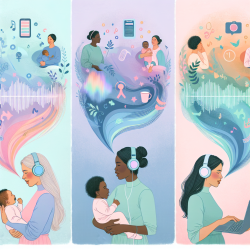Introduction
At TinyEYE, we are dedicated to delivering exceptional online therapy services to schools. To ensure our approaches are effective and equitable, it is crucial to integrate the latest research findings into our practice. One such insightful study is "Understanding chronic non-communicable diseases in Latin America: towards an equity-based research agenda" by De Maio (2011). This research provides valuable perspectives on the intersection of chronic diseases and social inequity in Latin America, which can inform our practice in meaningful ways.
Key Findings and Their Implications
The research highlights that chronic non-communicable diseases (NCDs) such as heart disease, stroke, and diabetes are not merely diseases of affluence but are deeply rooted in social inequalities. Here are some critical insights and their implications for our practice:
- Social Determinants of Health: The study emphasizes that health outcomes are significantly influenced by social determinants such as socioeconomic status, education, and access to healthcare. As practitioners, we must consider these factors when designing and implementing therapy programs, ensuring they are accessible and tailored to the needs of diverse student populations.
- Health Inequities: The research underscores the importance of addressing health inequities. We can implement targeted interventions to support students from disadvantaged backgrounds, ensuring they receive the same quality of care and opportunities for success as their more privileged peers.
- Comprehensive Approach: A multidisciplinary approach is essential for understanding and addressing chronic diseases. By collaborating with other professionals, including educators, social workers, and healthcare providers, we can create a holistic support system for students.
Encouraging Further Research
While the study provides a robust framework for understanding chronic diseases and health inequities, it also highlights the need for further research. As practitioners, we can contribute to this ongoing research by:
- Collecting and analyzing data from our therapy sessions to identify patterns and areas for improvement.
- Collaborating with academic institutions to conduct studies that explore the impact of our interventions on student outcomes.
- Staying informed about the latest research and integrating new findings into our practice.
Conclusion
By incorporating the insights from this research into our practice, we can enhance the effectiveness of our therapy services and contribute to reducing health inequities. This approach aligns with our commitment to creating great outcomes for children, regardless of their background.
To read the original research paper, please follow this link: Understanding chronic non-communicable diseases in Latin America: towards an equity-based research agenda.










